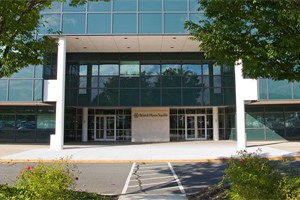 Bristol-Myers Squibb has become the first pharma company to get approval in the EU for a PD-1 inhibitor, winning EMA approval for its Opdivo drug as a treatment for melanoma.
Bristol-Myers Squibb has become the first pharma company to get approval in the EU for a PD-1 inhibitor, winning EMA approval for its Opdivo drug as a treatment for melanoma.
The EU regulator gave the nod to Opdivo (nivolumab) as a treatment for both first-line and previously-treated patients with advanced melanoma, regardless of whether they carry the BRAF mutation.
The accelerated approval is based on the results of BMS’ CheckMate-066 and CheckMate-037 trials, which involved treatment-naïve and pre-treated melanoma patients, respectively.
CheckMate-066 revealed 73% one-year survival rate with Opdivo, compared to 42% among patients treated with comparator drug dacarbazine, which means BMS’ drug reduced the risk of dying by 58%.
In CheckMate-037, the combination of Opdivo and BMS’ Yervoy (ipilimumab) – plus a BRAF inhibitor in patients with were BRAF-positive – achieved an objective response rate of 32%, compared to 11% among patients treated with conventional chemotherapy.
Historically, prognosis for late-stage metastatic melanoma has been poor, says BMS. The average survival rate for stage IV is just six months with a one-year mortality rate of 75%.
Opdivo was the first drug in the PD-1 inhibitor class to be approved for marketing – getting a green light in Japan as a melanoma treatment towards the end of last year – although it was beaten to market in the US by Merck & Co’s rival drug Keytruda (pembrolizumab).
BMS’s drug has also been granted approval by the US FDA for squamous non-small cell lung cancer (NSCLC), ahead of its rival, with data in the more common non-squamous NSCLC category due shortly.
While still in the early stages of roll-out, the PD-1 inhibitors are predicted to become a major new therapeutic category in cancer with sales of up to $30bn a year spread across multiple products and oncology indications.
Analysts have suggested peak Opdivo sales will be in the vicinity of $5bn, though some – including Leerink’s Seamus Fernandez – think it could reach up to $7.3b by 2020. First-quarter sales of the drug were $40m, a little behind Keytruda which made $83m thanks to its earlier US launch.
For decades, chemotherapy was the standard treatment for patients with advanced melanoma, but it did not improve survival.
In the last three years, the authorisation of targeted treatments, including monoclonal antibodies, BRAF V600 and MEK inhibitors, have significantly changed the therapeutic landscape.




